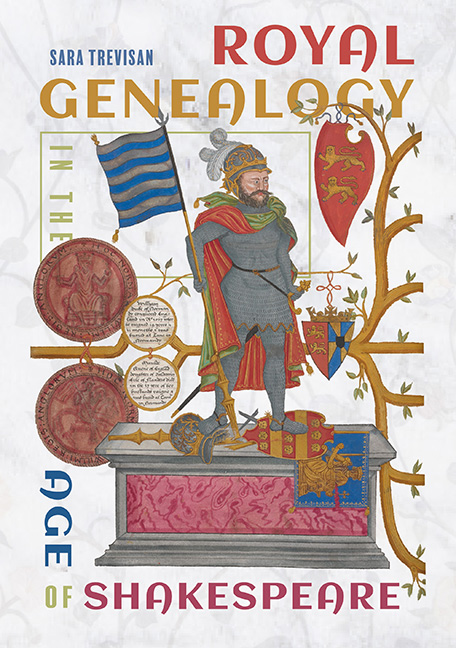Summary
The resolution of the succession in favour of James did not lessen the need for royal genealogies; the lineal legitimacy of his rule needed to be shown to the English subjects of their new Scottish king. The importance of pedigrees remained great throughout the Jacobean reign, especially to the mid-1610s. In his first speech to Parliament, James VI and I set the tone for genealogical political discourse, proclaiming that his succession was legitimate ‘by lineal hereditary right, all Acts of Parliament and other exercises in law notwithstanding’. He also asserted that he held ‘the right and title of both [kingdoms] in my Person’, being ‘alike lineally descended of both the Crowns’ of England and Scotland. James presented his legitimate ancestry and its continuation through metaphors exalting his thriving ‘body natural’ as the means to assure the permanence of the ‘body politic’ of the monarchical institution. Approved a year after his accession, the Act of Recognition stated that, according to the laws of God and man, the imperial crown of England had ‘descended’ on him ‘by inherent birthright and lawful and undoubted succession’. The ‘undoubted succession’ and ‘lineal descent’ were celebrated not only in poems and prints outlining his pedigree from the Tudors, Edward III, or William the Conqueror. They were also visualised through intricate genealogical rolls or tables tracing James's ancestry to the ancient British-Welsh, Germanic, and Scottish-Irish kings, and ultimately to Noah and Adam.
This desire to depict an all-embracing genealogy of James VI and I, capable of outlining his multilineal descent, is voiced most clearly in the preface, authored by the antiquarians George Owen Harry and Robert Holland, to an unpublished Welsh translation of the king's political essay Basilikon Doron (1598). This translation was accompanied by a complex pedigree – probably that published in Owen Harry's name in 1604. Although their aim was mainly to celebrate James's mythical and historical British-Welsh ancestry, Owen Harry and Holland acknowledged that all the king's ancestral lines bore equal value within the definition of his legitimacy.
- Type
- Chapter
- Information
- Royal Genealogy in the Age of Shakespeare , pp. 193 - 245Publisher: Boydell & BrewerPrint publication year: 2020



